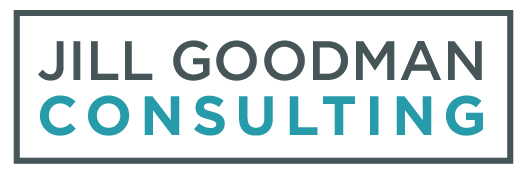Validation: The Path Forward
When I can connect two completely separate experiences or ideas to form a leap of thought that is helpful to school leaders, I'll take it. If there are three, it's hardly a leap. It's an in-your-face, better-pay-attention moment worth sharing.
Here's the three experiences:
First, my friend and colleague Chuck English was outraged that people in our space are still claiming that a school's woes stem from adversarial parents who are willing to choose another school the moment their concerns are not addressed and students' needs are not met to parent satisfaction or the school's claims. He knows we can do better if we just listen.
Second, a school leader shared with me that their school experienced significant attrition last year in a specific grade. When I asked if he knew what caused it, he told me that a group of “entitled” parents, some of whom were leadership donors, decided that their children’s teacher was ineffective. The parents behaved “horribly” and assumed they could openly berate the teacher and administrators. When I asked if anyone conducted exit interviews with the parents to hear more about where the alignment splintered, he said, “No, we never want to talk with them again.”
Lastly, Adam Grant, author and host of the podcast Rethinking, interviewed clinical psychologist Caroline Fleck. Her specialty is validation as the key to unlocking thoughts and behaviors that are adversely impacting her clients and helping them to a better path. She says, "Their emotions may be valid, even if their thoughts are not. Their behavior may be valid, even if their thoughts are not. And all I need to do is find which of those is valid and validate that."
I've often written about validating emotions in school settings, but I have not specifically called it that. Today, we are talking about validation because it is an underlying and unifying contributor to enrollment attrition or lack of conversion from accepted to enrolled. I am confident in that statement due to the many Attrition, Insight, and Conversion Studies I have conducted for client schools since 2018. And if we wanted to add donor relations to the mix, lapses in donor engagement can also stem from a lack of validation.
Let's consider some thoughtful points that Dr. Fleck discusses in her podcast interview and her book, Validation: How the Skill Set That Revolutionized Psychology Will Transform Your Relationships, Increase Your Influence, and Change Your Life. My takeaways include these next steps in facilitating more productive conversations with parents, students, faculty, and staff:
· Validation includes mindfulness, understanding, and empathy.
· When using validation as a means of connection and understanding, your goal is to communicate that their response was logical at that moment.
· Try to look at the larger context to understand where that reaction came from. Understanding the parent's experience when they were a student can be helpful.
· Some situations don't require immediate problem solving, but rather, validation.
· Don't confuse praise with validation.
· Validation is not an endorsement of bad behavior.
In the conversation between Fleck and Grant, there was one more important a-ha moment for me. Dr. Fleck brought up the interesting idea that victims of the fires in California experienced a public lack of validation and empathy in their suffering and loss because many of the victims were wealthy. I wonder if school leaders tend to marginalize some parents and consider them adversarial or demanding while minimizing their concerns precisely due to their wealth and privilege. To quote Caroline Fleck, "Every single person suffers, and every single person does well to be seen in their suffering."
We should continue to talk about the need for customer service in schools and schools as businesses. While both are true and deserve our words and actions, let's remember that at the heart of every school, there is a collection of people working very hard to facilitate the successful growth of young humans. Working together is better than in opposition.
The author, Jill Goodman, is a consultant working with independent school leaders to advance their school’s mission, enhance their processes, and bolster their skills. Learn more about all services here.
Photo credit: James Wheeler for Unsplash



